Revitalizing Rhodes Through biophilIc Architecture
A Modern Renaissance at the Grand Hotel Rhodes
The Grand Hotel Rhodes, the island's first 5-star establishment, stands as a landmark of avant-garde design and a symbol of Rhodes' resilient spirit. Throughout its history, it has welcomed iconic figures such as Winston Churchill and Margaret Thatcher, thereby deeply embedding its story within the island's rich cultural tapestry. This landmark is undergoing a thoughtful transformation that honours its storied past while looking forward with a biophilic design ethos, an approach rare in Rhodes' modern urban setting.
This revitalization goes beyond aesthetic renewal. It aims to foster a harmonious relationship among architecture, nature, and the community. By integrating natural materials, lush courtyards, and Mediterranean-inspired landscapes, the project reconnects the hotel with its environment, creating serene, human-centred spaces that invite reflection and rejuvenation. Heritage elements, such as the preserved windmill, are being revived as vibrant communal hubs, weaving Rhodes' landscape into the fabric of contemporary life.
By blending biophilic principles with innovation, the Grand Hotel Rhodes offers a renewed vision for the island's architectural future, where beauty, sustainability, and cultural continuity coexist. More than a restoration, this transformation sets a vital precedent for biophilic design in Rhodes, proving that progress can deepen our connection to place and the natural world. As the island evolves, the Grand Hotel stands as a model for architecture that honours both the land's spirit and the human's needs.
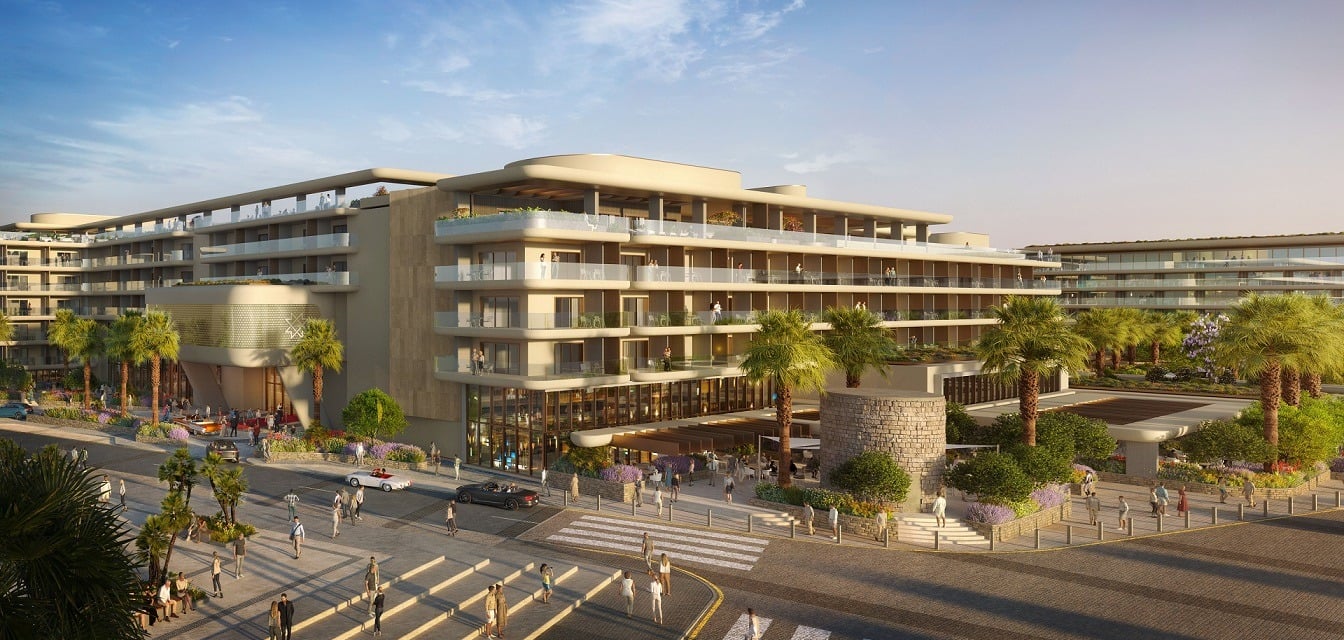

Photo Render: Mitsis Group
Restoring Architectural Elegance
The redesign combines the hotel's modernist origins with the island's rich architectural traditions. Inspired by Italian influences and Rhodes's natural beauty, the renewed vision reconnects the structure to its original intent, integrating natural materials and thoughtful spatial planning. Courtyards adorned with local stone and lush greenery foster moments of serenity, creating spaces where nature and design coexist.
This approach not only revives the hotel's character but also elevates it, transforming once-static spaces into dynamic environments that breathe with light, air, and life. Every detail, from the orientation of balconies to the layering of textures and local elements, is designed to enhance the sensory experience and wellbeing. It is a vision that respects its place, engages the present, and gently points toward a future where architecture supports ecological balance and cultural depth on the island.
Old Photo of Hotel: Mitsis Group
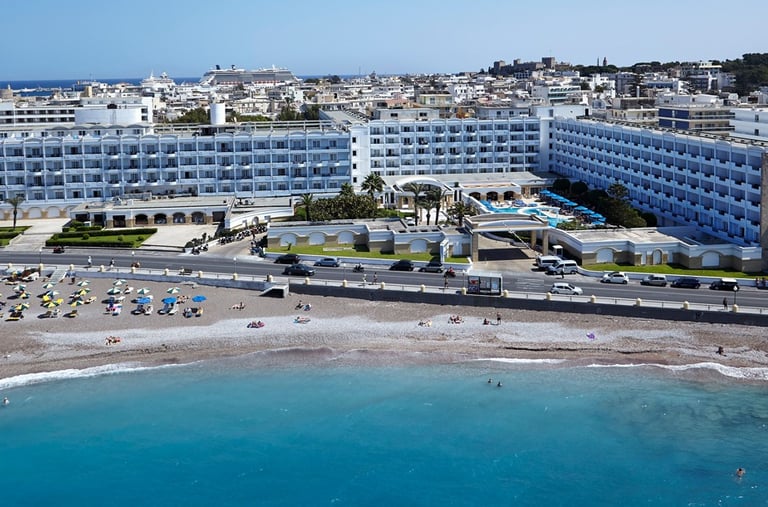

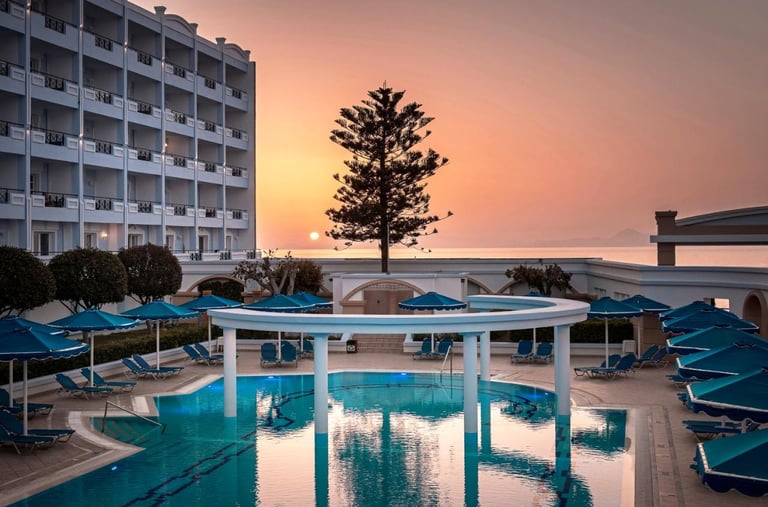

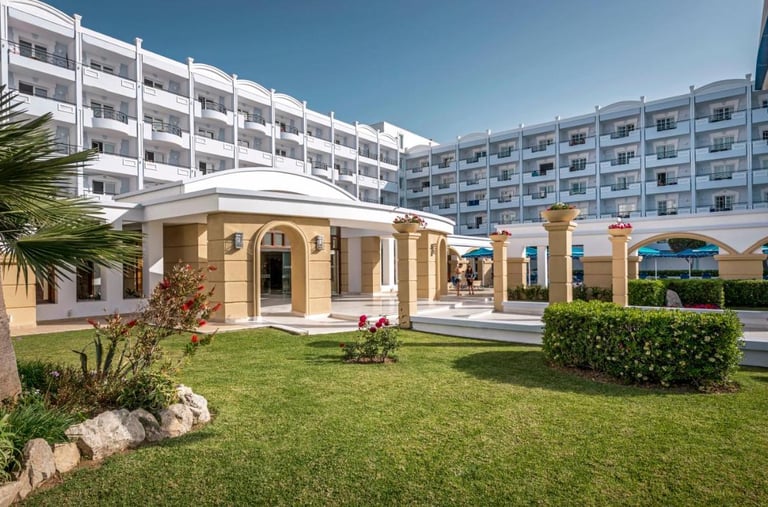

Architecture as Experience: A Gateway to Biophilic Integration
Every spatial transition is reimagined, evoking a deeper connection to place. Movement through the building becomes a sensory journey, where shifting light, natural textures, and layered views create a dialogue between interior and exterior. The reintroduction of natural elements enhances the aesthetic and supports a slower, more intentional pace of experience, encouraging pause, presence, and contemplation.
This design philosophy moves beyond decoration; it positions architecture as a responsive, rooted, and emotionally resonant living system. In doing so, the Grand Hotel becomes more than a destination; it becomes a restorative threshold between the built environment and the island's enduring natural and cultural rhythms.
Designing for Connection and Legacy
The Grand Hotel Rhodes redefines luxury by embracing biophilic principles and upholding cultural continuity. Central to the building's façade, balconies extend outward, blending indoor and outdoor living while offering breathtaking sea views. The adjacent windmill, preserved and revitalized, anchors a lively marketplace and café, creating a communal space for locals and visitors alike.
These gestures of integration signal a shift in how architecture participates in everyday life, not as a static monument, but as a responsive, shared environment. By embedding public spaces within the hotel's fabric, the design invites interaction across boundaries of guest and resident. It champions a legacy built not only on form or function, but on the lived experience of place, fostering a built environment that evolves with, and for, its community.
Photo Render: Mitsis Group
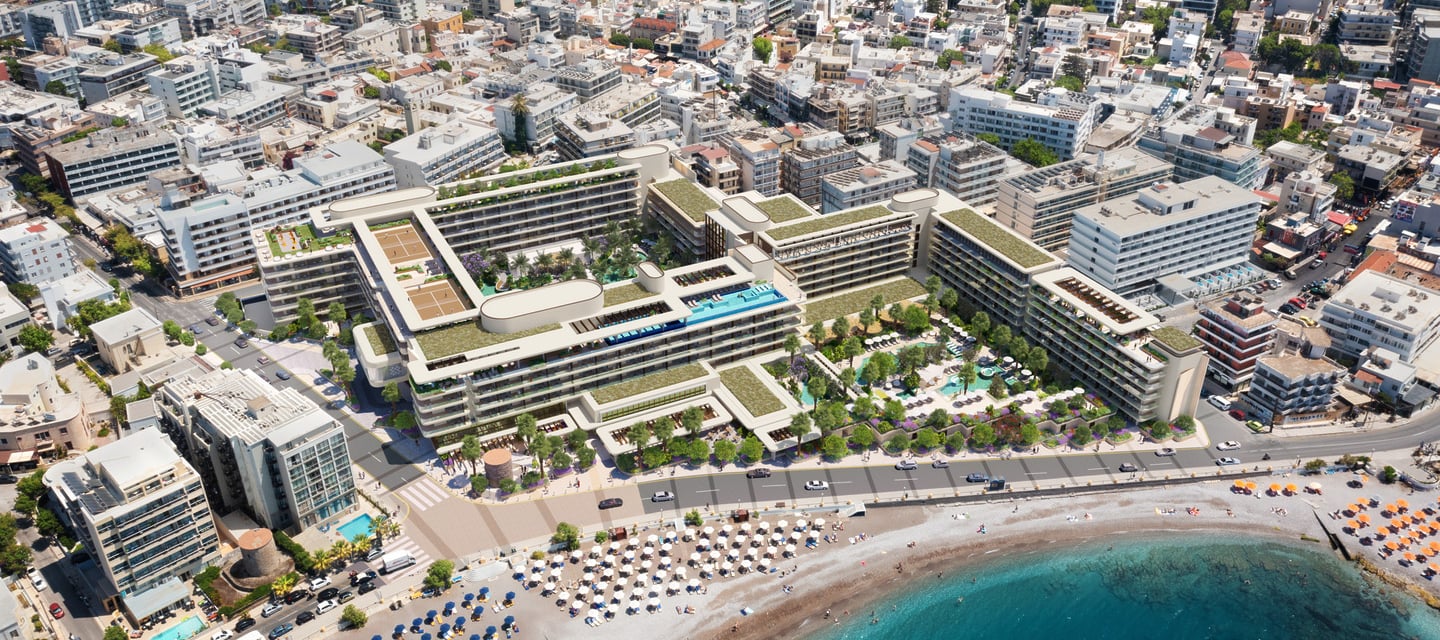

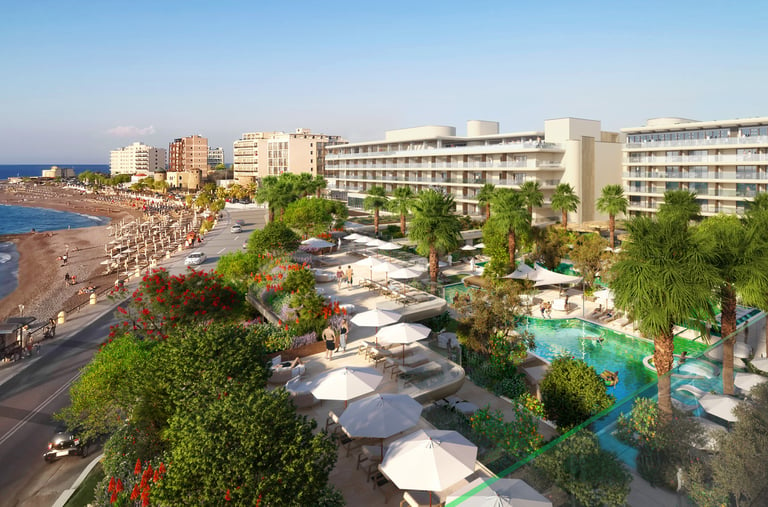

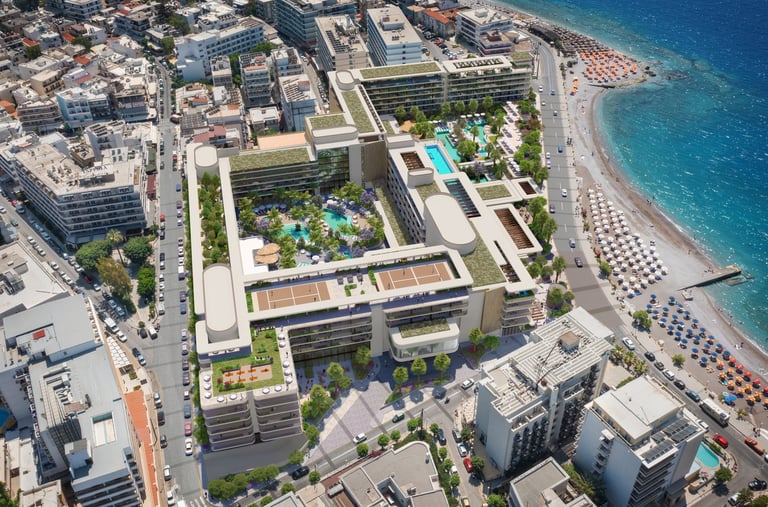

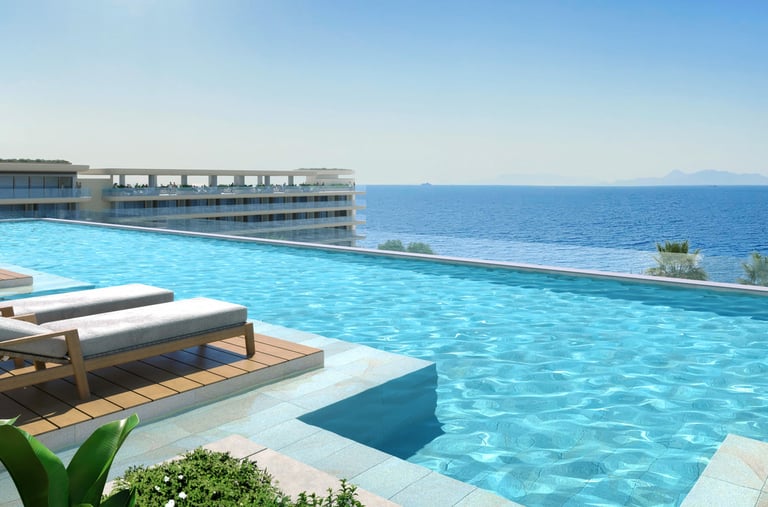

Photo Render: Mitsis Group
An Urban Oasis for Rhodes
The transformation of the Grand Hotel Rhodes is not merely about modernizing a building, but about creating a space that truly serves people. With a renewed focus on biophilic design and community integration, this project marks a bold step toward reimagining how architecture can nurture wellbeing, connection, and a more profound sense of place by weaving nature and community back into the urban fabric, it sets a precedent for how thoughtful design can elevate daily life.
Biophilic design is the way forward, strengthening local identity, enhancing quality of life, and reconnecting us with the landscapes that shape who we are. At Biophilic Estates, we proudly carry this philosophy through every project on the island, crafting spaces that work in harmony with nature and community, rather than against them. Transformative initiatives like this position Rhodes as a beacon of thoughtful, enduring design, rooted in place, and built for the future.
We are deeply encouraged to see the Mitsis Group and their architectural partners, WATG and ROAM Interior Design, embrace this vision boldly. Their willingness to innovate within a complex and often divided context is a testament to their belief in Rhodes and its potential to lead, not only within Greece but on the world stage. Mr. Angelatos holds Mr. Stavros Mitsis's vision in high regard.
Change is never without its challenges, but this project brings much-needed renewal to our island. Mr. Angelatos believes Rhodes' design philosophy will evolve through this effort, and its long-term value will be felt across the entire community. Beyond hospitality, this marks a new chapter in how we approach design and grow together as Rhodians, shaping a shared and more nature-connected future.
